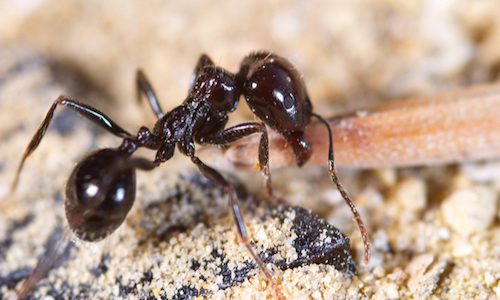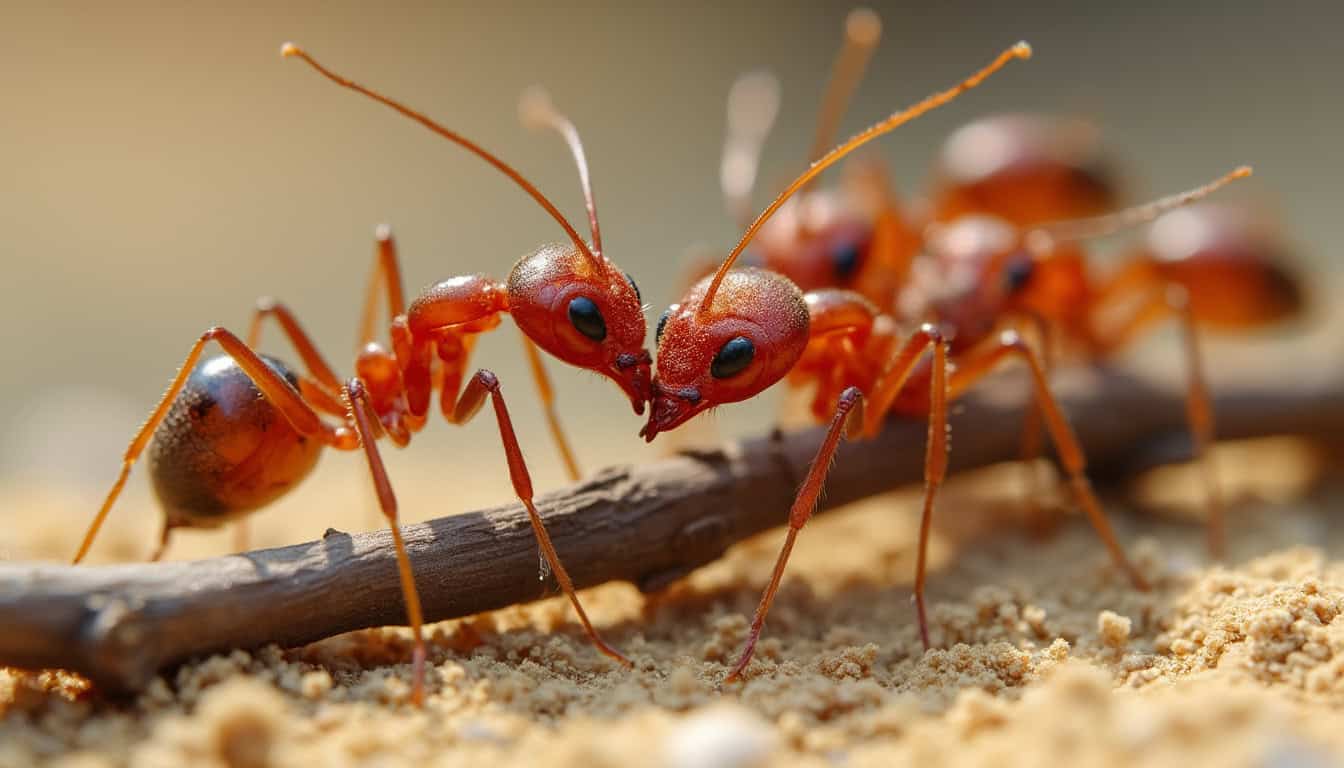Advanced Termite Control: Proven Techniques for Getting Rid Of Termite Infestations
Advanced Termite Control: Proven Techniques for Getting Rid Of Termite Infestations
Blog Article
Ecological Impact of Parasite Control: Balancing Performance With Sustainability
The environmental influence of pest control is a crucial concern that needs a fragile equilibrium between attaining performance in handling parasites and making sure sustainability of our ecosystems. As we make every effort to safeguard our plants, homes, and health and wellness from the dangers positioned by pests, the techniques we employ can accidentally harm the environment. From the usage of hazardous chemicals that permeate into our dirt and water to the unintentional consequences on non-target types, the effects of traditional parasite control practices are far-ranging. Nonetheless, there are emerging methods that offer expect an extra lasting approach to pest administration. These options not just aim to resolve the immediate bug troubles but likewise take into consideration the long-lasting health of our world.
Damaging Chemicals in Pest Control
The usage of harmful chemicals in parasite control postures substantial ecological and wellness threats that call for mindful factor to consider and reduction methods. Herbicides, pesticides, and insecticides are frequently used to eliminate pests, but their prevalent application can bring about unexpected repercussions. These chemicals can contaminate soil, water sources, and the air, influencing not just the targeted insects yet additionally beneficial insects, wild animals, and people.

To resolve these risks, integrated pest management (IPM) techniques are being promoted as an extra lasting option. IPM includes a combination of methods such as biological control, environment adjustment, and the targeted usage of pesticides as a last resort (ant control concord nc). By taking on an alternative technique to pest control, we can reduce the environmental and wellness effects related to unsafe chemicals while effectively taking care of pest populations
Effect On Non-Target Variety
Thinking about the unintended effects of parasite control techniques, the impact on non-target varieties is an important aspect that needs complete evaluation. While parasite control steps intend to target particular pests, various other organisms in the ecological community might be inadvertently affected. Non-target species, consisting of advantageous insects, birds, creatures, and also plants, can experience indirect or straight damage from chemical applications or organic control techniques.
Pesticides designed to combat a specific insect pest may harm pollinators like or all-natural predators such as ladybugs. Organic control agents, if not species-specific, can position dangers to unexpected targets, interfering with the eco-friendly balance.
To alleviate the effect on non-target varieties, incorporated bug administration (IPM) methods that emphasize an alternative method to pest control are recommended. These methods prioritize using eco-friendly methods, lessening damage to beneficial microorganisms while properly managing pest populaces. Performing detailed threat assessments and monitoring the end results of pest control initiatives are necessary steps in protecting non-target species and advertising total ecosystem wellness.
Dirt and Water Contamination
Unintentional ecological effects of insect control approaches extend beyond influencing non-target species, with substantial effects for soil and water contamination - ant control. Pesticides, herbicides, and chemical fertilizers made use of in parasite control can seep into the soil and pollute groundwater, posturing a risk to both terrestrial and water communities.
Water contamination is an additional vital problem connected with pest control techniques. Drainage from farming fields treated with pesticides can carry these chemicals into nearby water bodies, impacting water microorganisms and water top quality. Impurities in water sources can have significant repercussions, affecting not just water life yet additionally human wellness via the consumption of contaminated water or water microorganisms. To mitigate dirt and water contamination from parasite control activities, integrated pest management strategies that prioritize sustainability and minimize chemical inputs are essential.
Air Air Pollution From Chemical Use
Exposure to air-borne pesticides during agricultural applications positions a considerable issue for air pollution control measures. When pesticides are splashed onto crops, they can volatilize right into the air and type unstable natural substances (VOCs) and other air-borne contaminants. These chemicals can add to the formation of ground-level ozone, a significant element of smog that can have destructive effects on human health, plant productivity, and general air quality. In addition, chemical drift, where chemicals are carried by the wind to unplanned areas, can bring about the contamination of close-by ecosystems and water bodies.

Methods for Lasting Parasite Control
In the realm of farming practices, executing sustainable insect control approaches is paramount for maintaining eco-friendly equilibrium and safeguarding crop yields. Sustainable insect control highlights using ecologically friendly methods to handle bug populaces properly while decreasing injury to non-target organisms and communities. Integrated Insect Administration (IPM) is a commonly embraced method that combines biological, cultural, physical, and chemical control methods to achieve long-term parasite monitoring remedies.
One trick approach in lasting pest control is promoting biodiversity within agroecosystems. By improving natural enemies of pests, such as killers and parasitoids, farmers can minimize the requirement for synthetic pesticides. Plant turning and diversification are also effective strategies to interrupt pest life cycles and develop much less positive conditions for pests to grow. In addition, utilizing pest-resistant plant selections and utilizing techniques like catch cropping can help in reducing bug stress without counting heavily on chemical interventions. Inevitably, by incorporating these sustainable parasite control methods, farmers can achieve a balance in between pest administration effectiveness and ecological stewardship.
Final Thought
In verdict, the ecological influence of insect control approaches must be meticulously considered to stabilize performance with sustainability. Unsafe chemicals made use of in insect control can bring about dirt and water contamination, air pollution, and harm non-target varieties - termite control. It is crucial to execute lasting parasite control strategies to reduce these adverse results on the environment and promote a much healthier ecological community for future generations
By adopting an alternative technique to pest control, we can decrease the ecological and wellness impacts connected with dangerous chemicals while properly managing pest populations.

To mitigate the air pollution created by pesticide usage, it is essential to embrace integrated bug monitoring techniques that focus on the use of non-chemical pest control methods, such as crop rotation, natural killers, and resistant crop selections. Lasting bug control stresses the use of ecologically pleasant methods to handle parasite populations properly while lessening injury to non-target organisms and communities. Integrated Parasite Management (IPM) is a commonly embraced strategy that combines biological, social, physical, and chemical control methods to achieve long-lasting bug monitoring solutions.
Report this page